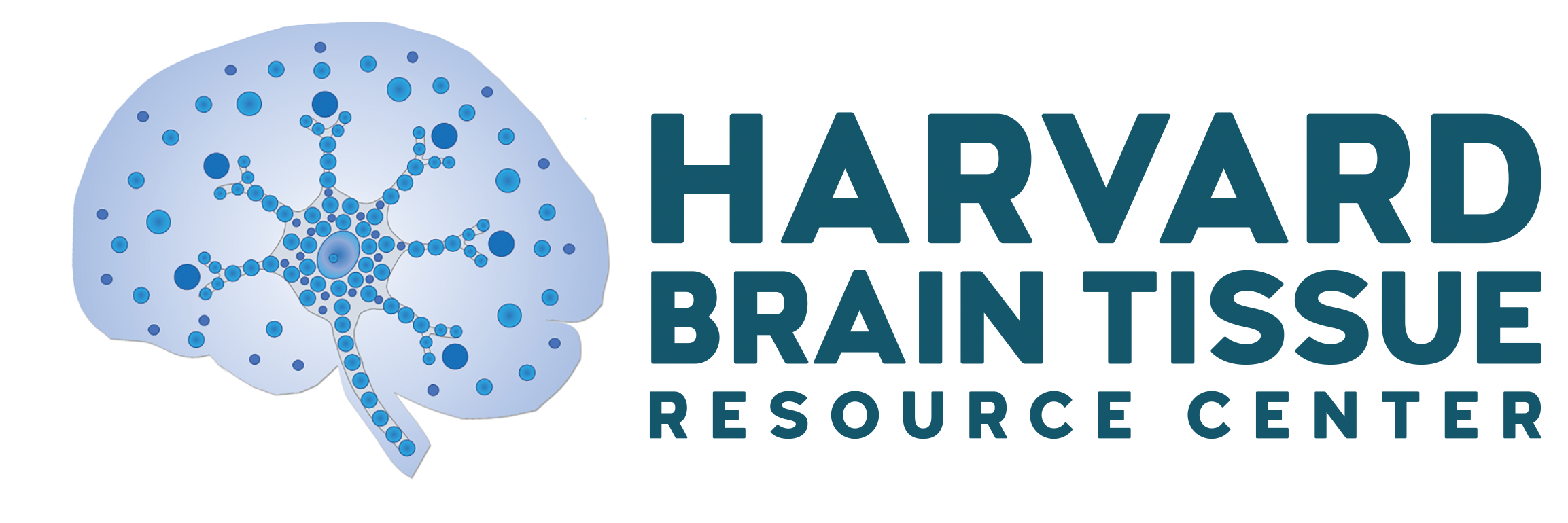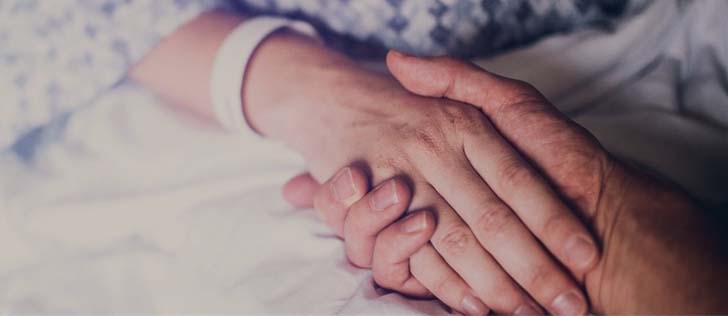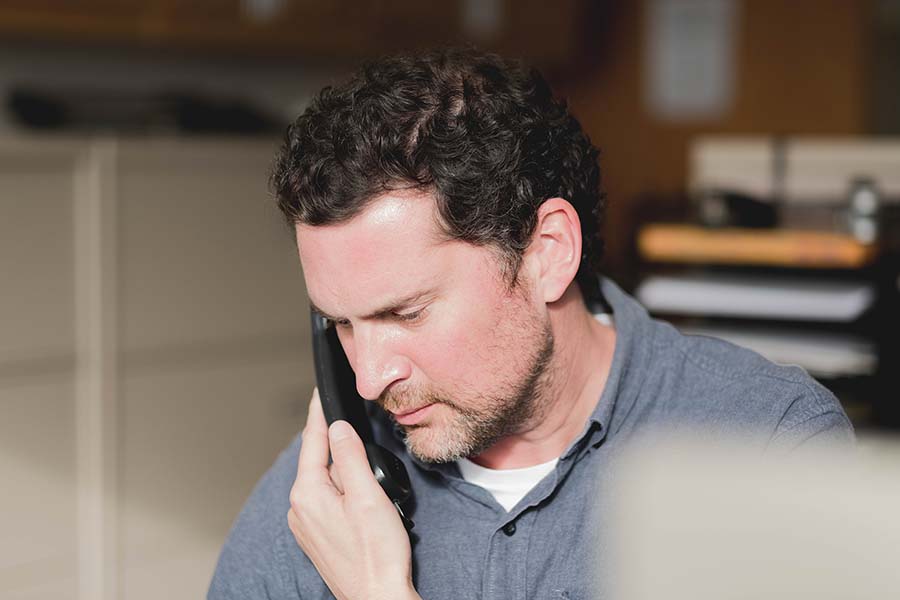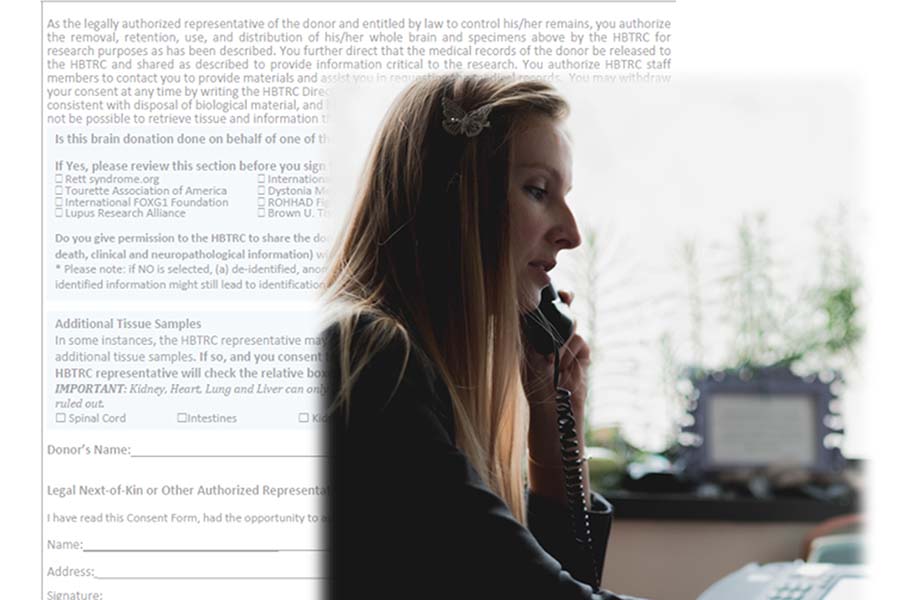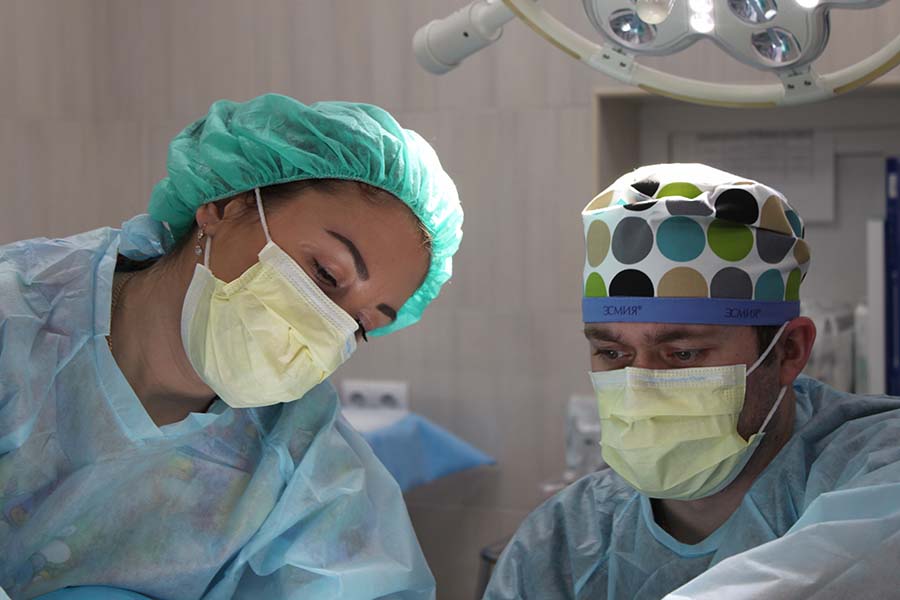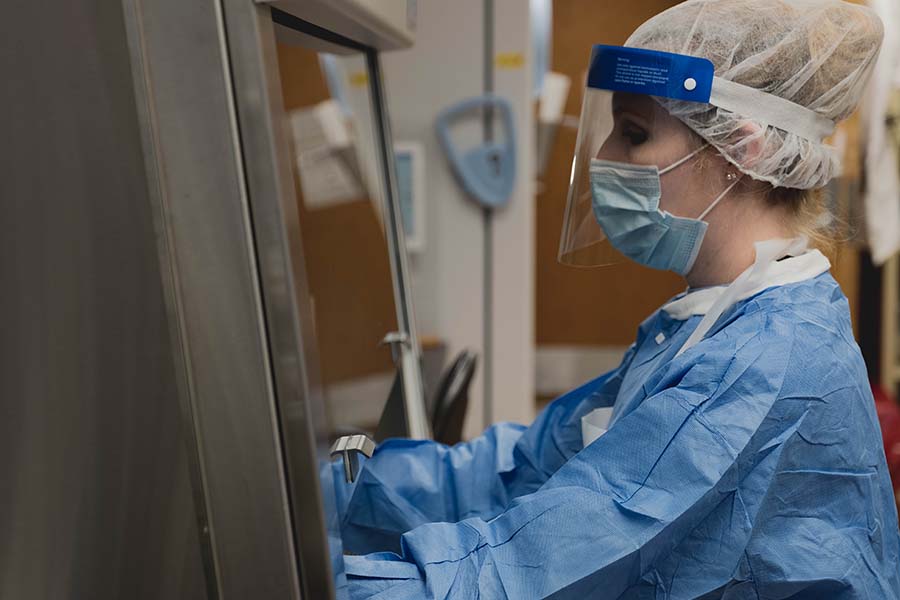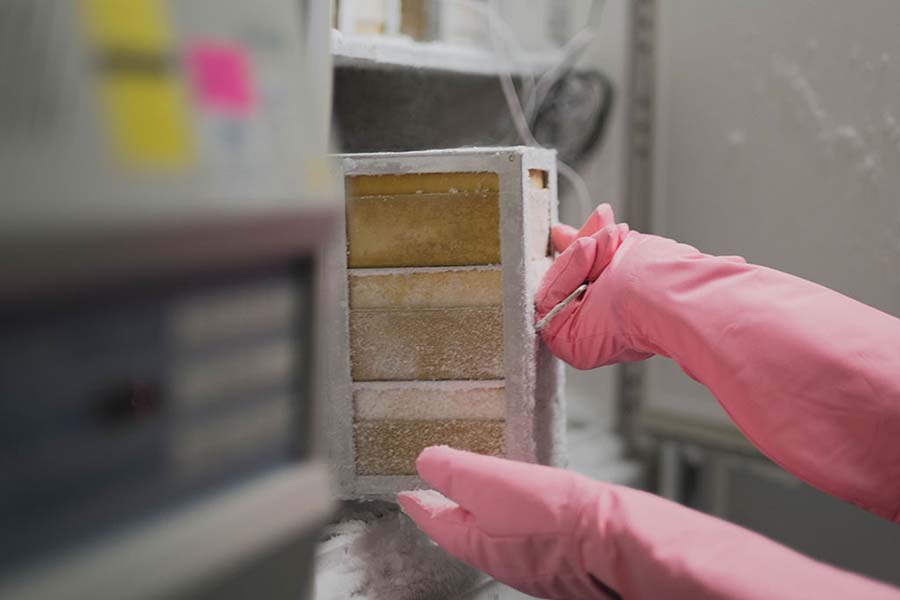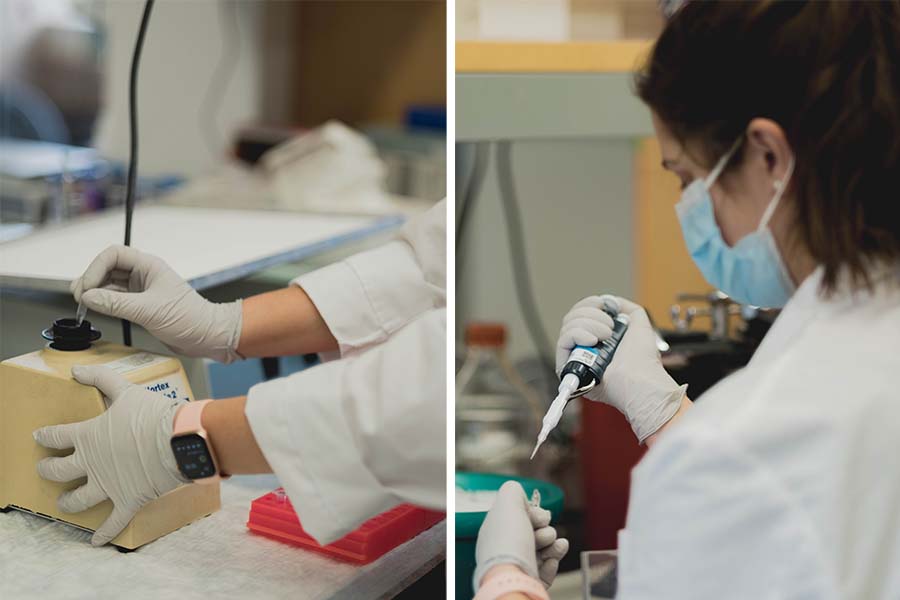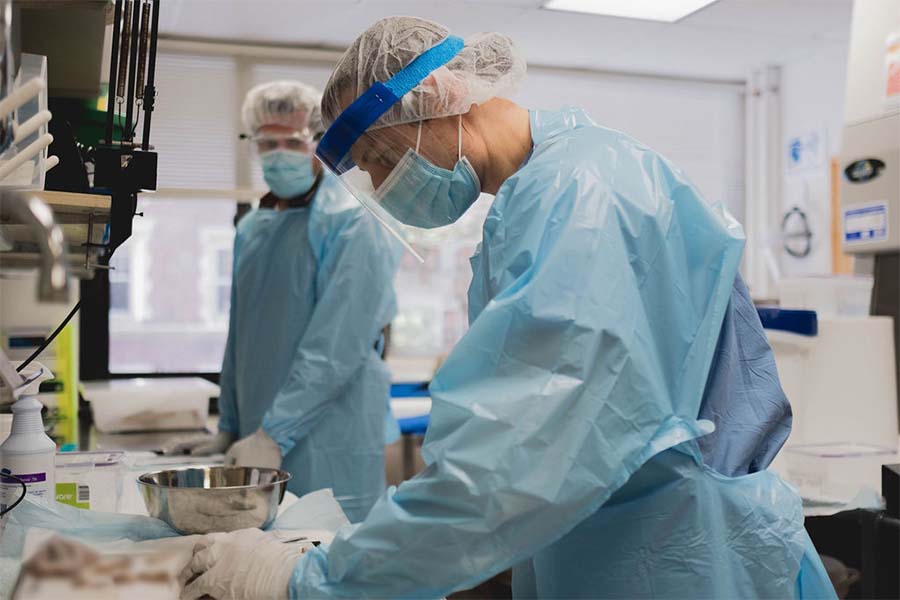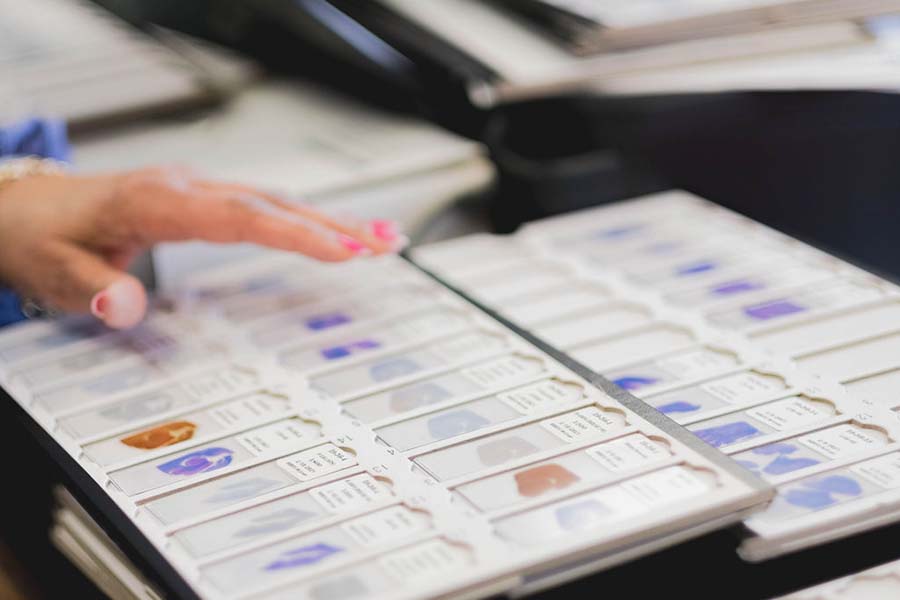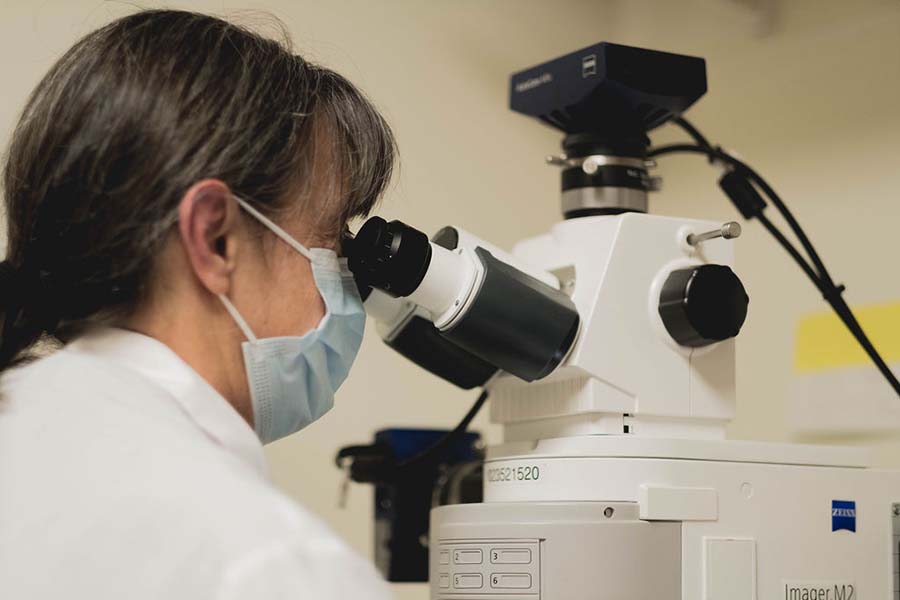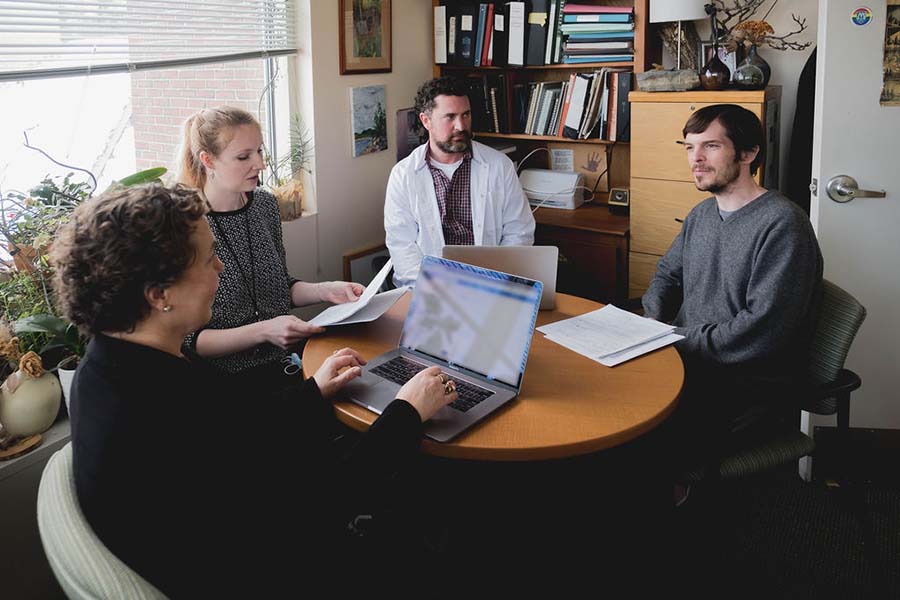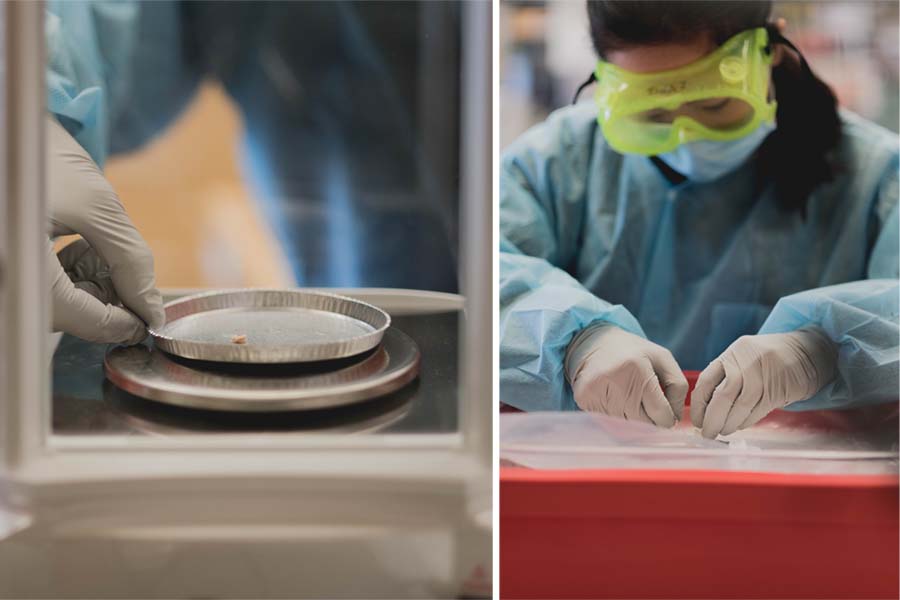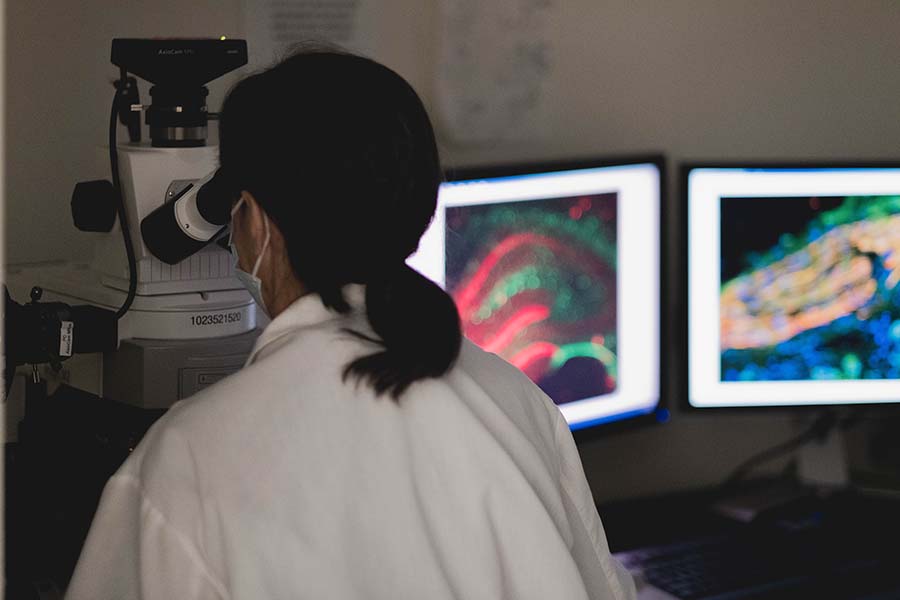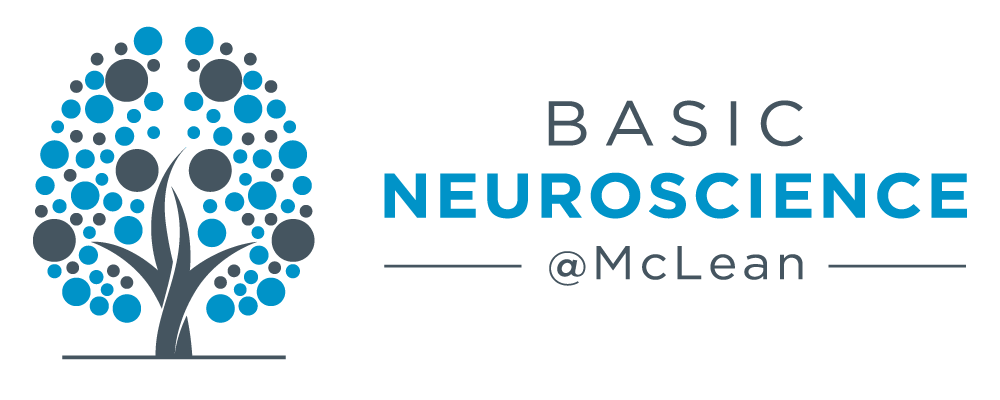Brain Donation
Information about Brain Donation
A brain donation is an invaluable gift of knowledge. It allows us to gain insight into the human brain and better understand nervous system disorders, such as neurological, neurodevelopmental and psychiatric conditions. Brain donations are key to advancing research on the causes of these illnesses and informing the development of new and more effective treatments. Society owes the significant discoveries and progress made every day to brain donors and their families. Their tremendous generosity helps to create a brighter, more hopeful future for those affected by highly debilitating disorders of the nervous system.
We realize that for many families the decision to donate may be a difficult one and is often made under particularly stressful conditions. The HBTRC encourages all those interested in brain donation, either themselves or on behalf of a family member, to contact us as far in advance as possible. We are happy to answer questions, address any concerns and discuss the donation process in more detail.
Who Can Become a Brain Donor?
The HBTRC gratefully accepts brain donations from:
-
Donors Unaffected by Nervous System Disorders
Unaffected donors are persons who are not affected by nervous system disorders. Brain donations from unaffected donors are precious for two important reasons. First, they allow us to expand our knowledge of the human brain. Second, they are essential to studies on nervous system disorders. This is because changes in the brain of people suffering from nervous system disorders can only be detected in comparison with unaffected donors.
-
Donors Affected by Nervous System Disorders
Brain donations from persons affected by nervous system disorders – such as neurological, neurodevelopmental and psychiatric conditions – are vital to research on these illnesses. Research on the brains of people who suffered from nervous system disorders is essential. By studying these brains, researcher acquire critical knowledge about the alterations that these highly debilitating diseases cause in the brain.

Exclusionary criteria
Considerations related to scientific design, tissue integrity and safety impose a small number of restrictions on our ability to accept a brain donation. Exclusionary criteria are listed below:
- Excessive delay between donor's death and brain recovery
- Stroke
- Penetrating injuries to the head
- Donor is HIV, Hep B or Hep C positive
- Donor is COVID-19 positive and a facility with appropriate equipment for safe recovery is not available
- Factors indicating that the donor may have prion disease
- Prolonged time on a ventilator
-
I am interested in becoming a brain donorBrain Donor Registration
Becoming a prospective tissue donor is easy. Any person 18 years of age or older can contact the Harvard Brain Tissue Resource Center (HBTRC) at 800.BRAIN.BANK (800.272.4622) to learn more about becoming a donor.
There are three ways to register for brain donation:
- Download a registration form here and mail or Fax it to the HBTRC at the following address:
Harvard Brain Tissue Resource Center
McLean Hospital
115 Mill Street, Mail Stop 138
Belmont, MA 02478
Fax: (tel:1-617-855-3199) - Call the Harvard Brain Tissue Resource Center (HBTRC) at 1-800-BRAIN BANK (1-800-272-4622)
- Secure Online Registration (Adobe Acrobat Sign) Please prepare the following information beforehand:
- Donor's complete name, including current name and maiden name, if applicable, all without abbreviations
- Donor's contact information
- Donor's date of birth
- Donor's place of birth
- Donor's medical, neurological and psychiatric diagnoses and related details including a brief medical history, treatments, and medication (if applicable)
- Name, relationship, mailing address, and phone number of legal next-of-kin
Please complete the secure registration form in one session, otherwise it will time-out after 10 minutes of inactivity and you can lose your registration information. The time-out is required as a security measure to protect your sensitive information.
It is most important to inform your family – next of kin or other legally authorized representative - that you have registered for potential brain donation at the HBTRC, and make sure they know to call the HBTRC (immediately) at the time of your death. HBTRC must rely on your legal next of kin/legally authorized representative to contact HBTRC in order to effectuate your request to donate your brain. HBTRC will not solicit donations or initiate a follow-up based on your registration.
Discussing your interest in brain donation with your family in advance is important. It helps families to understand and be prepared to honor the donor's wish, avoid any misunderstandings and facilitates the donation process.
During the Registration process, we will collect some information about yourself. This information is particularly useful. It will help during the brain donation process to quickly gather the information needed to carry out the process. Some of this information, such as medical conditions if applicable, will also be used for research purposes after brain donation. Please note that sensitive or personal information will never be shared with third parties and that research data will be strictly anonymized to protect your privacy.
A Registration for brain donation can be withdrawn at any time by writing to the HBTRC. All information related to your Registration will be destroyed and you no longer be included in the HBTRC Registry
Summary of key points
- Registering as a Prospective Donor with the HBTRC is a good way to let your family and care takers know about your intentions.
- Have a family discussion about brain donation. Don't forget to inform your health care providers and funeral professionals about your decision.
- A Registration helps the HBTRC to collect a small amount of information about the prospective donor. This information will be useful at the time of brain donation and for research purposes.
- All information about Registered Prospective Donors is kept strictly confidential. It is not shared with third parties other an as fully anonymized data after brain donation.
- A registration is useful but not essential to proceed with a brain donation.
- A Registration to become a brain donor is not binding.
- A Registration to become a brain donor can be withdrawn at any time.
- Download a registration form here and mail or Fax it to the HBTRC at the following address:
-
I am a family member of a prospective brain donorBrain Donor Registration
In some case, a family may wish to explore the possibility of registering as a prospective brain donor, a family member. This is often the case when the family member suffers from a severely debilitating brain disorder, and therefore unable to register themselves. Because a registration is not binding, the HBTRC can accept registrations made on behalf of a close relative.
It is important to know that, at the time of the death of a potential donor, the legal next of kin will need to be available to review and sign a “Postmortem Authorization for Brain Donation,” (Informed Legal Consent) for the donation to HBTRC. This is because an individual's body becomes the property of their estate at the time of their death. Please see Frequently Asked Questions (FAQ) for more information on consent hierarchy/authority.
There are three ways to register for brain donation:
- Download a registration form here and mail or Fax it to the HBTRC at the following address:
Harvard Brain Tissue Resource Center
McLean Hospital
115 Mill Street, Mail Stop 138
Belmont, MA 02478
Fax: (tel:1-617-855-3199) - Call the Harvard Brain Tissue Resource Center (HBTRC) at 1-800-BRAIN BANK (1-800-272-4622)
- Secure Online Registration (Adobe Sign)
If you'd like to discuss this process, please feel free to contact the Harvard Brain Tissue Resource Center (HBTRC) at 800.BRAIN.BANK (800.272.4622)
Summary of key points
- A Prospective Donor Registration is a helpful way to discuss the possibility of brain donation with family and care takers
- A Registration helps the HBTRC to collect a small amount of information about the prospective donor. This information will be useful at the time of brain donation and for research purposes.
- All information about Registered Prospective Donors is kept strictly confidential. It is not shared with third parties other an as fully anonymized data after brain donation
- A registration is useful but not essential to proceed with a brain donation.
- A Registration to become a brain donor is not binding.
- A Registration to become a brain donor can be withdrawn at any time.
- Download a registration form here and mail or Fax it to the HBTRC at the following address:
-
I am a family member of a prospective donor in declining healthWe are grateful for your interest in brain donation on behalf of a family member during this very challenging time. Please call the HBTRC 1-800-BRAINBANK (1-800-272-4622) at your earliest convenience to discuss the possibility of brain donation. If death is expected within hours, please call us as soon as possible. It is essential that we start working together to assess the possibility and logistics of a brain donation. Our Donation Coordinators are available 24 hours/day. If a longer time frame is expected (days), please call us during office hours at your earliest convenience.
-
I'm a family member of a deceased potential donorAt the time of death, family members or caretakers should call 1-800-BRAINBANK (1-800-272-4622) and be prepared to provide the following information:
- Donor's complete name
- Donor's date of birth
- Date and time of death (if known) or the “last seen alive time” & circumstances of death
- Donor's medical, neurological and psychiatric diagnoses and related details including a brief medical history, treatments, and medication (if applicable)
- Name, relationship, mailing address, and phone number of legal next-of-kin
- Current location of donor's body, i.e. (hospital, nursing home, medical examiner's office, funeral home) and their respective contact information
- Contact information for the funeral home or cremation service that the family will be using [if known]. If the decedent is not yet there, what time they are expected to be there?
HBTRC staff will first carry out a screening process to determine whether it is possible to accept the brain donation. There are certain exclusionary criteria including certain medical conditions, time frame limits, and potential logistical issues [inclement weather, etc.].
Once a HBTRC staff member confirms that the HBTRC can accept the brain donation, it is useful to discuss whether you have access to a FAX machine, computer or smart phone, as these can be used to carry out the informed consent process.
HBTRC staff guides the legal next-of-kin/legal representative through the consent process, reviewing the Postmortem Authorization for Brain Donation and other documents. The complete Postmortem Authorization for Brain Donation, signed by the legal next-of-kin/legal representative, must be received by HBTRC staff in order to proceed with the brain donation.
- The HBTRC provides a variety of portals to send this form securely.
- Please note that only the legal next-of-kin/legal representative can sign the Informed Consent Form. Under the Massachusetts Uniform Anatomical Gift Act, the hierarchy for those legally authorized to make a donation of the potential donor's brain after his/her death is as follows:
- An agent of the potential donor, including, but not limited to, a health care agent appointed under a health care proxy
- Legal Spouse
- Adult Child
- Either Living Parent
- Adult Sibling
- Adult Grandchild
- Grandparent
- An adult who exhibited special care and concern for the potential donor
- A person who was acting as a guardian of the person of the potential donor at the time of death
- Any other person having the authority to dispose of the body
The HBTRC then forwards the complete Postmortem Authorization for Brain Donation to a pathology specialist who will then proceed with removal and recovery of the brain and related tissues.
- The brain needs to be recovered and shipped to the HBTRC within hours following the death of the donor. Only the donor's brain will be sent to HBTRC. The donor's body will not be transported away from your local area and further arrangements of the donor's body after recovery take place [burial, cremation, etc] are not the responsibility of the HBTRC.
Under the Massachusetts Uniform Anatomical Gift Act, an individual's decision to make a donation of his/her organs and/or tissues (which includes making a gift of one's brain) shall be complied with and shall not require the consent or concurrence of another individual after the potential donor's death. If your family member has made a binding decision to donate his/her brain to HBTRC, please inform HBTRC of that decision when you contact HBTRC at the time of the potential donor's death.
If a binding decision to donate has not already been made by a prospective donor, at the time of the death, the legal next of kin will need to provide informed consent. They will need to be available to review and sign a “Postmortem Authorization for Brain Donation,” (Informed Legal Consent) for the donation to HBTRC. This is because an individual's body becomes the property of their estate at the time of their death. Please see Frequently Asked Questions (FAQ) for more information on consent hierarchy/authority.
